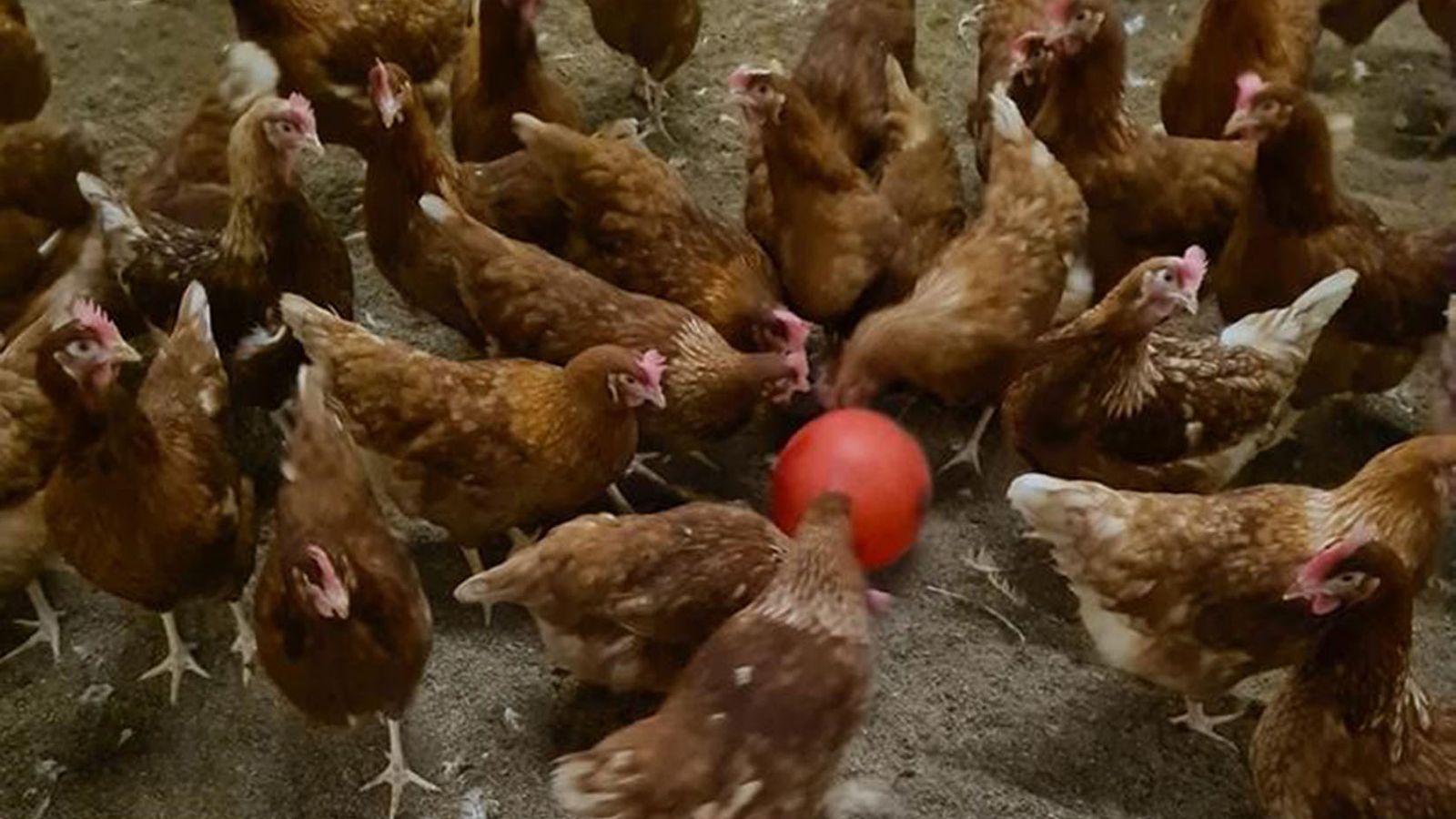Bird flu has been detected in two poultry workers after they came into contact with infected birds, the UK Health Security Agency (UKHSA) has said.
The two workers have recently worked on an infected poultry farm in England.
Neither have experienced any symptoms of bird flu and have tested negative since.
Please use Chrome browser for a more accessible video player
The avian flu was detected in the workers after they took tests for asymptomatic people who had been in contact with infected birds.
Bird flu detected in humans can either be a true infection or can come after the nose and throat are contaminated when breathing in materials on the affected farm.
Based on the timing of exposures and test results, one of the workers infected is likely to have had contamination after inhaling materials on the farm.
It is unclear in the second person’s case if he was also contaminated after inhalation or whether he was truly infected.
US bird flu outbreak ‘wiping out everything in numbers we’ve never seen before’, scientists warn
Chilean man’s bird flu infection has ‘concerning’ mutations
First human death from H3N8 bird flu recorded in China, WHO says
Further investigation is under way but precautionary contact tracing has been undertaken for the second individual.
The UKHSA said it has not detected evidence of human-to-human transmission.
Read more:
Chilean man’s bird flu infection has ‘concerning’ mutations
The level of risk to human health has not changed since the detection of bird flu and the danger remains very low to the general population.
Professor Susan Hopkins, chief medical adviser at UKHSA, said: “Current evidence suggests that the avian influenza viruses we’re seeing circulating in birds around the world do not spread easily to people.
“However, we know already that the virus can spread to people following close contact with infected birds and this is why, through screening programmes like this one, we are monitoring people who have been exposed to learn more about this risk.”
Click to subscribe to the Sky News Daily wherever you get your podcasts
Professor Hopkins added: “Globally there is no evidence of spread of this strain from person to person, but we know that viruses evolve all the time and we remain vigilant for any evidence of changing risk to the population.
“It remains critical that people avoid touching sick or dead birds, and that they follow the DEFRA advice about reporting.”






















